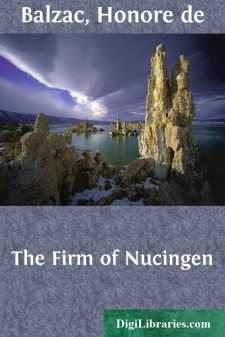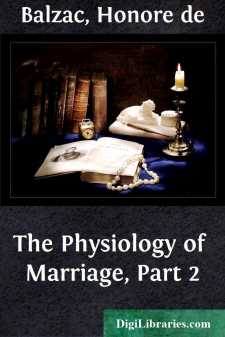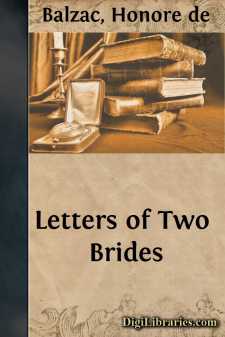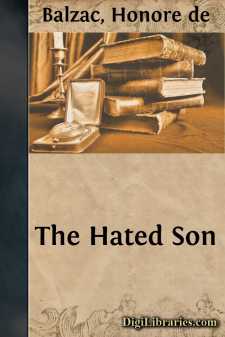Categories
- Antiques & Collectibles 13
- Architecture 36
- Art 48
- Bibles 22
- Biography & Autobiography 813
- Body, Mind & Spirit 142
- Business & Economics 28
- Children's Books 15
- Children's Fiction 12
- Computers 4
- Cooking 94
- Crafts & Hobbies 4
- Drama 346
- Education 46
- Family & Relationships 57
- Fiction 11829
- Games 19
- Gardening 17
- Health & Fitness 34
- History 1377
- House & Home 1
- Humor 147
- Juvenile Fiction 1873
- Juvenile Nonfiction 202
- Language Arts & Disciplines 88
- Law 16
- Literary Collections 686
- Literary Criticism 179
- Mathematics 13
- Medical 41
- Music 40
- Nature 179
- Non-Classifiable 1768
- Performing Arts 7
- Periodicals 1453
- Philosophy 64
- Photography 2
- Poetry 896
- Political Science 203
- Psychology 42
- Reference 154
- Religion 513
- Science 126
- Self-Help 84
- Social Science 81
- Sports & Recreation 34
- Study Aids 3
- Technology & Engineering 59
- Transportation 23
- Travel 463
- True Crime 29
The Firm of Nucingen
by: Honore de Balzac
Categories:
Description:
Excerpt
THE FIRM OF NUCINGEN
You know how slight the partitions are between the private rooms of fashionable restaurants in Paris; Very's largest room, for instance, is cut in two by a removable screen. This Scene is not laid at Very's, but in snug quarters, which for reasons of my own I forbear to specify. We were two, so I will say, like Henri Monnier's Prudhomme, "I should not like to compromise her!"
We had remarked the want of solidity in the wall-structure, so we talked with lowered voices as we sat together in the little private room, lingering over the dainty dishes of a dinner exquisite in more senses than one. We had come as far as the roast, however, and still we had no neighbors; no sound came from the next room save the crackling of the fire. But when the clock struck eight, we heard voices and noisy footsteps; the waiters brought candles. Evidently there was a party assembled in the next room, and at the first words I knew at once with whom we had to do—four bold cormorants as ever sprang from the foam on the crests of the ever-rising waves of this present generation—four pleasant young fellows whose existence was problematical, since they were not known to possess either stock or landed estates, yet they lived, and lived well. These ingenious condottieri of a modern industrialism, that has come to be the most ruthless of all warfares, leave anxieties to their creditors, and keep the pleasures for themselves. They are careful for nothing, save dress. Still with the courage of the Jean Bart order, that will smoke cigars on a barrel of powder (perhaps by way of keeping up their character), with a quizzing humor that outdoes the minor newspapers, sparing no one, not even themselves; clear-sighted, wary, keen after business, grasping yet open handed, envious yet self-complacent, profound politicians by fits and starts, analyzing everything, guessing everything—not one of these in question as yet had contrived to make his way in the world which they chose for their scene of operations. Only one of the four, indeed, had succeeded in coming as far as the foot of the ladder.
To have money is nothing; the self-made man only finds out all that he lacks after six months of flatteries. Andoche Finot, the self-made man in question, stiff, taciturn, cold, and dull-witted, possessed the sort of spirit which will not shrink from groveling before any creature that may be of use to him, and the cunning to be insolent when he needs a man no longer. Like one of the grotesque figures in the ballet in Gustave, he was a marquis behind, a boor in front. And this high-priest of commerce had a following.
Emile Blondet, Journalist, with abundance of intellectual power, reckless, brilliant, and indolent, could do anything that he chose, yet he submitted to be exploited with his eyes open. Treacherous or kind upon impulse, a man to love, but not to respect; quick-witted as a soubrette, unable to refuse his pen to any one that asked, or his heart to the first that would borrow it, Emile was the most fascinating of those light-of-loves of whom a fantastic modern wit declared that "he liked them better in satin slippers than in boots."
The third in the party, Couture by name, lived by speculation, grafting one affair upon another to make the gains pay for the losses....












